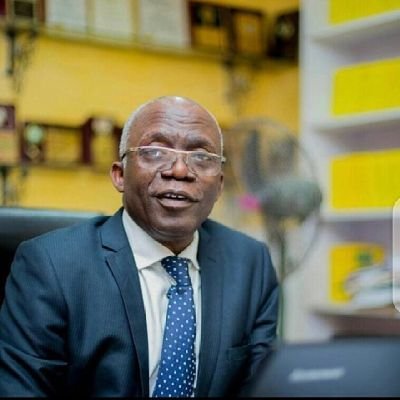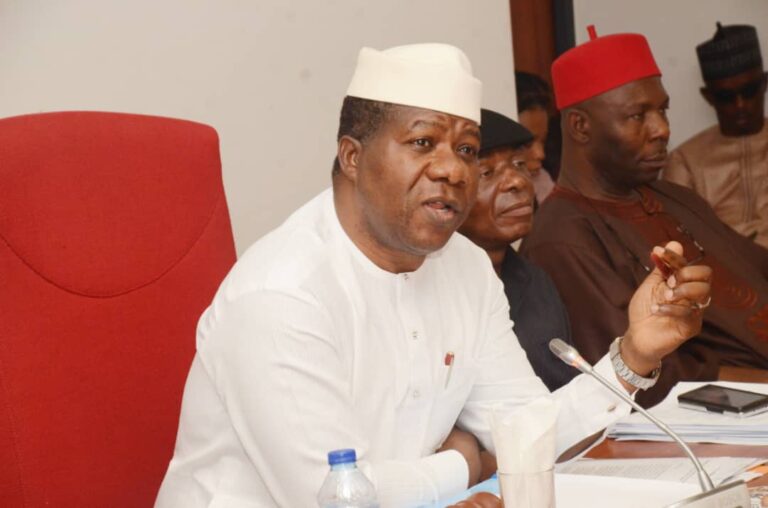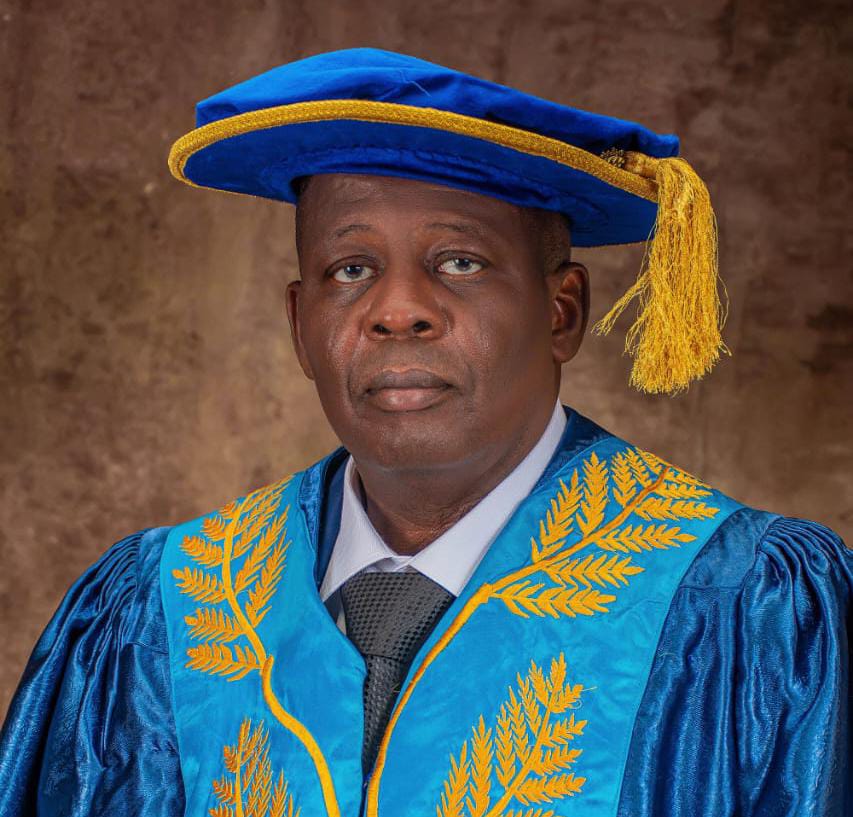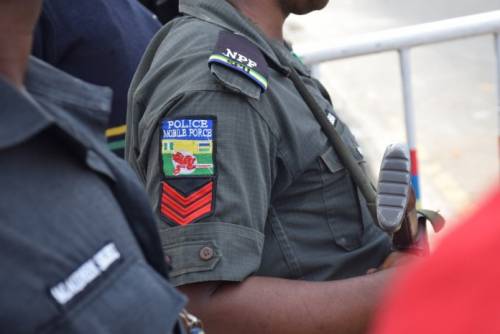The infinite wisdom in the popular axiom that ‘there can not be development in an environment devoid of peace,’ is daily staring us at the faces as developmental effort of even those who plan in the absence of peace are inevitably truncated by intractable crisis, hence the need to celebrate the new harmony between the leadership of Niger Delta Development Commission and the National Assembly for sustainable development of the Niger Delta region writes Chijioke Amu-Nnadi.
“The NDDC Interim Administrator has done well, because for development to take place, the first thing you need is peace. He has been able to reach out to stakeholders and members of the National Assembly.”
The above assessment, by the Chairman, Senate Committee on Niger Delta Affairs, Senator Peter Nwaoboshi, sums up the views of many lawmakers who had interacted with the NDDC Interim Administrator, Mr Efiong Akwa, in the last few weeks.
Since he mounted the saddle of leadership at the foremost interventionist agency in the Niger Delta region, Akwa has emphasized engagement with stakeholders as a way of building enduring partnerships for development.
He has engaged members of the executive branch of government, the legislature, civil society groups and community leaders, realising the importance of enlisting the support of major stakeholders in the task of developing the Niger Delta region.
The NDDC Chief Executive Officer has so far visited the governors of Rivers, Akwa Ibom and Delta states, as well as prominent Niger Delta leaders such as Chief Edwin Clark and Ann-Kio Briggs. Apparently, these engagements have helped in creating the right environment for the much needed development of Nigeria’s oil-rich region.
Akwa started very early in his assignment to mend fences with members of the National Assembly, who were not having the best of relations with the NDDC in the wake of the Commission’s Interim Management Committee, IMC.
His efforts paid off when on December 16 he was invited to the Senate Chambers to defend the Commission’s 2020 budget. It was a friendly encounter, as the National Assembly approved the budget that will take the NDDC through the first quarter of this year.
During the budget defence, Akwa was commended by Senators and House of Representative members for his professionalism, sense of duty and humility. Even the lawmakers that were hitherto unfriendly with NDDC’s previous leadership, agreed that Akwa deserved to be given an opportunity to succeed.
Last week, the Senate Committee on Niger Delta Affairs led by Nwaoboshi, further strengthened this support and collaboration when it undertook an oversight visit to the NDDC permanent headquarters in Port Harcourt.
Senator Nwaoboshi justified his committee’s new understanding with the NDDC, saying: “The Interim Administrator has done well, in terms of reaching out, communicating and discussing. He opened discussions with us. He told us that he is ready to work for the people of the Niger Delta region. We are happy that he accepted that there is need for cooperation and collaboration for Niger Delta to move forward.
“He has done well to bring peace and create a working understanding between us and all the stakeholders in the region. That is his greatest achievement. He didn’t come with a fight or confrontation.”
The Senate Committee Chairman assured that they would continue to collaborate with the Interim Administrator and the NDDC for as long as Akwa remained as the Chief Executive Officer of the Commission.
He advised those clamouring for a new board for the NDDC to be patient and allow the Interim Administrator to do his work, stating that as soon as the forensic audit was completed, President Muhammadu Buhari would appoint a new board.
Nwaoboshi expressed delight over the completion of the NDDC permanent headquarters, noting that the Committee had appropriated N16 billion for the completion of the headquarters building.
He stated: “We are happy to sit at the headquarters today. Yes it has taken time and money, but the fact is that it is completed today. We have come to see how the money has been used in executing the project.”
The House Committee on NDDC had earlier on February 12 visited the Commission’s headquarters on its own oversight tour. On that occasion, the Chairman of the Committee, Hon Tunji-Ojo stated that partnership with stakeholders would help in repositioning the NDDC for effective performance in its mandate states.
Mingling with the lawmakers, you could see a happy Interim Administrator sharing jokes and thanking the committee members for standing behind the Commission in bringing development to the Niger Delta region.
Akwa affirmed that relevant committees of both chambers of the National Assembly had been most supportive and helpful to the NDDC.
He thanked the Committee members for their wonderful support and the way they have guided the commission and protected it to navigate the murky waters of the region. The NDDC boss commended the lawmakers for their unflinching support for the NDDC, noting that the support was critical for the development and progress of the Niger Delta region.
Akwa said: “For about a year we had misunderstanding with some members of the National Assembly. The members are noble men and they had to bend backwards to bury the hatchet in the interest of the region. When I went to the joint session of the Senate and the House of Representatives to defend the 2020 budget, they cooperated with us. I assured them that we will insist on doing the right thing at the NDDC.
It is pertinent to note that the relevant committees in the Senate and the House of Representatives, the office of the Secretary to the Federal Government, the Advisory Committee made up of all the governors of the region, among others, take turns to beam searchlights on the activities of this very important interventionist agency. In a way, this has helped the commission to always be on its toes.
Against this background, the recent visits of the Senate and House Committees did not come as a surprise. The committees have a responsibility to perform oversight functions such as inspection of projects, looking at the books of the commission, engaging with management to identify challenges and exploring ways of mitigating them.
The intention of the Act setting up the NDDC was for the key development actors in the region, especially the state governments, to play a strategic roles and indeed take leadership in the harmonization of the development strides in the region. The Act provided and constituted the nine governors of the region into the NDDC Advisory Committee, thereby creating a window for the joint input of the governors and most importantly a platform for regional integration of plans, projects, actions and voices.
Incidentally, the National Assembly is critical to facilitating the integration process by providing the appropriate legislations. In this regard, the House Committee Chairman said: “The Committee is willing and ready to work with the NDDC in terms of drafting legislation that will ensure that the Commission is more efficient and delivers on its mandate.
“We want to see the NDDC deliver on legacy projects like the East-West road, the Calabar-Itu road and the Ikot-Ekpene-Aba road while it still undertakes emergency projects.”
The lawmaker stated that the NDDC should work towards the transformation of the Niger Delta region for the benefit of the people, assuring that the House Committee would help to set up the necessary mechanisms to ensure that the Commission was successful.
According to him,” it is the position of the committee that going forward, the NDDC is expected to award contracts to only contractors with capacity and focus.”
He harped on the importance of reviewing the Niger Delta Regional Development Master Plan, which he stated is long overdue. He, however, promised that efforts would be made to ensure that the states of the Niger Delta, Oil Companies, Private Sector, Multi-lateral organizations, civil Society and other stakeholders jointly review and update the Master Plan and commit to its effective implementation.
Tunji-Ojo noted: “Since the inauguration of this Committee nearly two years ago, this is the first time that the Committee is visiting the NDDC in line with its oversight functions and that is due to the current leadership of the Commission.”
The Committee Chairman noted that the NDDC, as an interventionist agency, was supposed to work on the basis of having quick turnaround on projects’ delivery. He regretted that this was not the case currently.
Akwa, was obviously very happy to receive the visiting lawmakers at the Commission’s permanent headquarters. He sought the support of the Committee in enacting legislations that would enhance the productivity of the interventionist agency and correct inconsistencies in the current NDDC Act.
He remarked: “There is a need for the House Committee members to interact with the NDDC to reform the NDDC Act. Like I stated at an earlier forum, there is the need to come up with a new Niger Delta Regional Development Master plan, as the previous master plan has expired. We seek your support in this regard.
Undoubtedly, the people of the Niger Delta would gain a lot when there is a cordial relationship between the National Assembly and the NDDC. Things had worked well in the past, at least before the birth of the IMC.
One could recall the kind of rapport existing between the NDDC and the lawmakers in 2017, when the legislators facilitated the expeditious passage of the amendment to the NDDC Act. In many respects, the amendment of the Liquefied Natural Gas (LNG) Act was the high point of the good relationship.
The new law included a clause that the LNG and other gas-producing companies must pay not less than three per cent of their annual total budget into the coffers of NDDC as their contributions to the fund.
~ Amu-Nnadi is an award winning poet and writes from Port Harcourt
Advertisement





